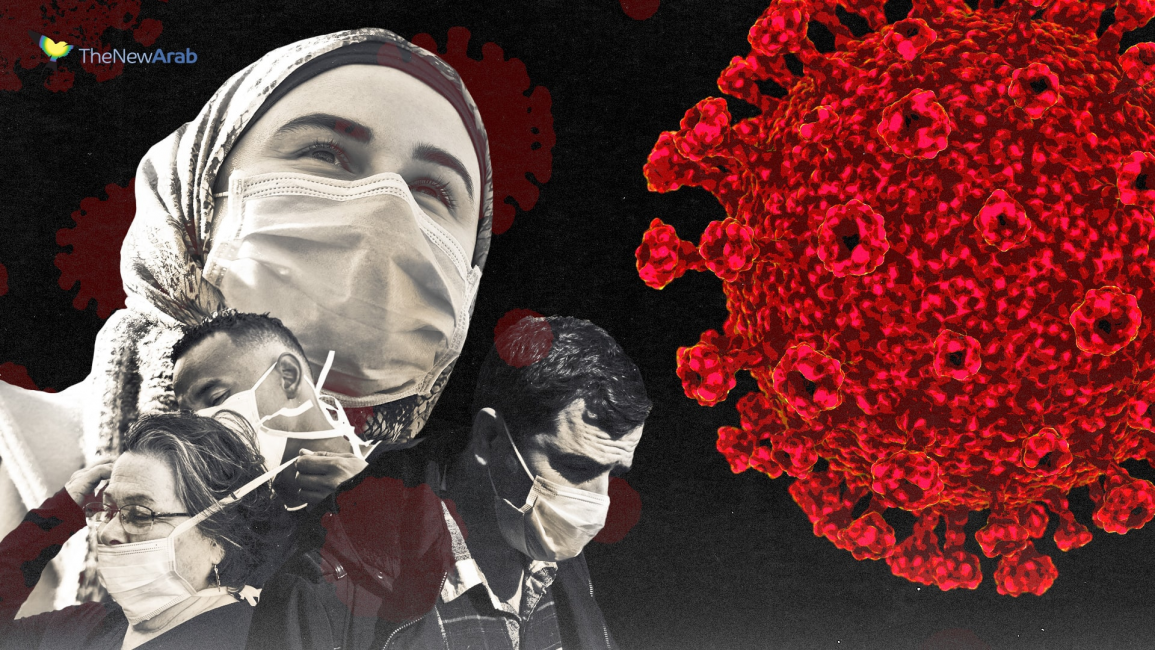The Middle East at war with coronavirus: Top stories from 27 March
Five areas in northern Turkey quarantined
A town and four villages were placed under quarantine in Turkey's Black Sea province of Rize to fight the novel coronavirus outbreak, health officials said on Friday.
The town of Kendirli and four adjoining villages were in lockdown to stem potential coronavirus cases, the provincial health directorate said in a statement. Traffic to and from these areas were banned. People with symptoms of coughing or fever will be identified and undergo health checks in their homes.
If their situation is serious, they will be hospitalised, the statement said.
Turkey has so far recorded 75 coronavirus deaths and 3,629 cases. It has not provided a breakdown of cases by region.
Authorities have taken a raft of measures across the country from shutting schools and universities, suspending football games to banning mass prayers.
 |
| Click to enlarge |
Iran says coronavirus death toll rises to 2,378
Iran on Friday announced 144 new deaths from the novel coronavirus, bringing the official number of fatalities to 2,378 in one of the world's worst-hit countries.
"In the past 24 hours, we've had 2,926 new confirmed cases of COVID-19 infections across the country," health ministry spokesman Kianoush Jahanpour said in a televised news conference.
"This brings the overall confirmed cases to at least 32,332," he added, noting that 11,133 of those hospitalised so far have recovered.
Jahanpour said nearly 2,900 of those infected are in a "severe" condition.
He said that the rising number of confirmed cases was due to Iranians increasingly "self-declaring" symptoms and undergoing testing.
The ministry has repeatedly called on citizens to visit a website and report potential symptoms.
The data, together with their phone number and ID, is used to identify potential cases.
Iran has imposed strict new containment measures, after weeks of public appeals largely failed to deter hundreds of thousands taking to the roads to visit family for the Persian New Year holidays.
Israel military to help enforce lockdown
Israel will deploy its army to assist police on street patrols to enforce a lockdown against the coronavirus epidemic, the military said on Friday.
About 500 troops will join police squadrons from Sunday to help "in patrolling, isolating and securing certain areas, blocking routes and additional similar assignments", the military said in a statement.
Israel has reported more than 3000 infections and 10 deaths from the illness.
Twitter Post
|
This week, authorities tightened a partial lockdown, requiring citizens to stay within 100 metres of home and setting sanctions for defying rules.
Israelis have been told to stay home where possible, schools have been shut and many businesses have closed, prompting more than 500,000 lay-offs.
Police have set up roadblocks to enforce curbs on movement and break up gatherings.
Lebanon extends lockdown until mid-April
Lebanon extended a lockdown by two weeks until April 12 to combat the spread of the coronavirus, its information minister announced, while introducing strict new steps that seemed to amount to an overnight curfew.
Under the lockdown, declared under a state of medical emergency on March 15, people can only leave their homes to buy food and medicine and all non-essential businesses have been closed, along with Beirut airport.
"We are still in a very dangerous stage for the spread of the corona epidemic and therefore it is necessary to extend the deadline," Information Minister Manal Abdel Samad said, citing remarks from Prime Minister Hassan Diab after a cabinet meeting on Thursday.
Lebanon tightened measures further, ordering the closure of supermarkets and food producers between 7 p.m. and 5 a.m. and allowing only the operation of pharmacies, producers of medical supplies, mills, and bakeries during this time.
Iraq extends nationwide curfew
The Iraqi government announced it will extend a countrywide lockdown it imposed in response to the coronavirus pandemic until April 11.
Schools, universities, shopping centres and other large gathering places will remain closed, as will the country's international airports.
Authorities have confirmed that at least 29 Iraqis have died from COVID-19 and nearly 350 others have contracted the disease.
But there are fears the real number is much higher, as only around 2,000 of Iraq's 40 million people have been tested.
A spike in cases could overwhelm the country's dilapidated health system, ravaged by years of conflict and underinvestment.
Follow us on Facebook, Twitter and Instagram to stay connected



